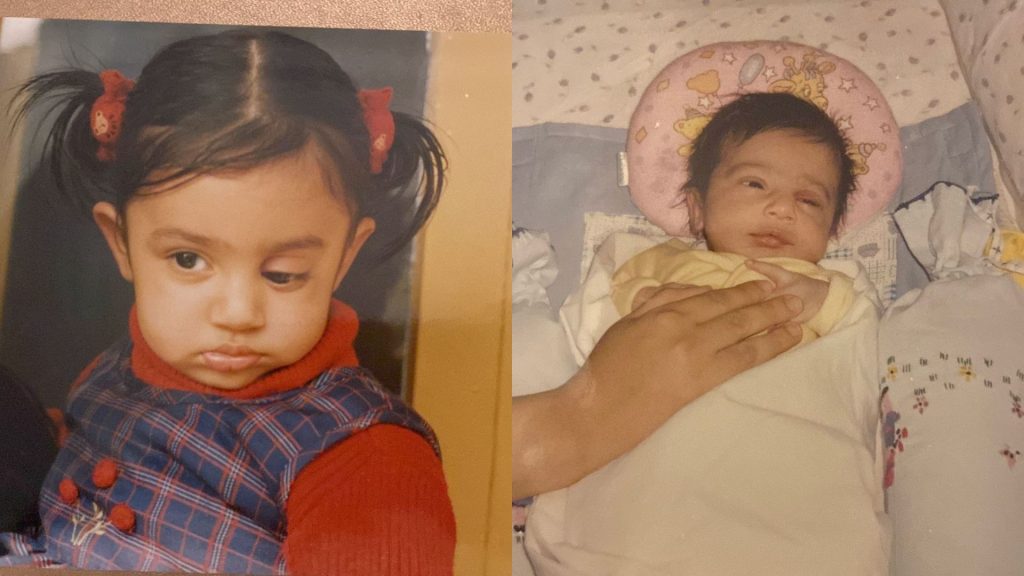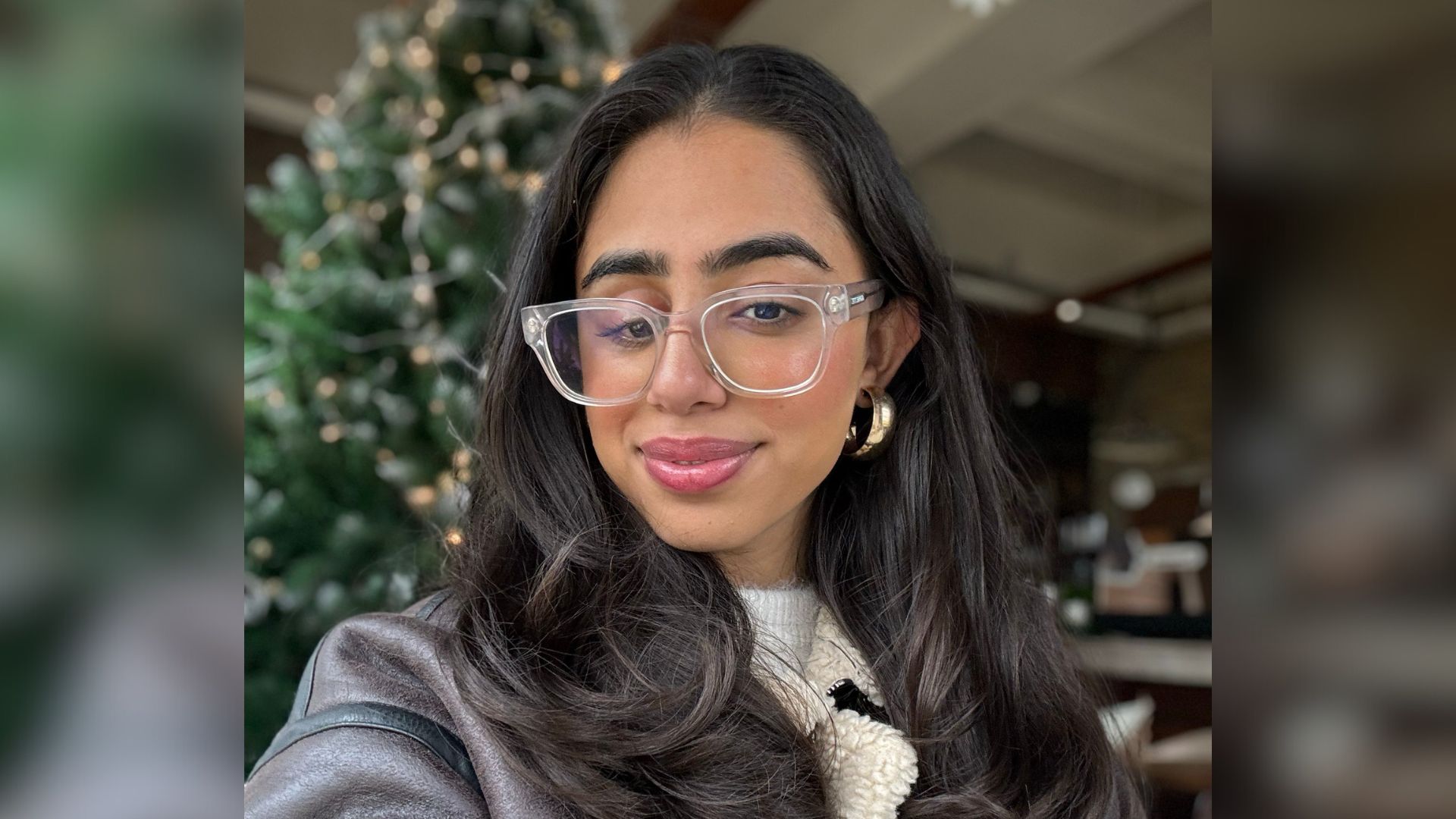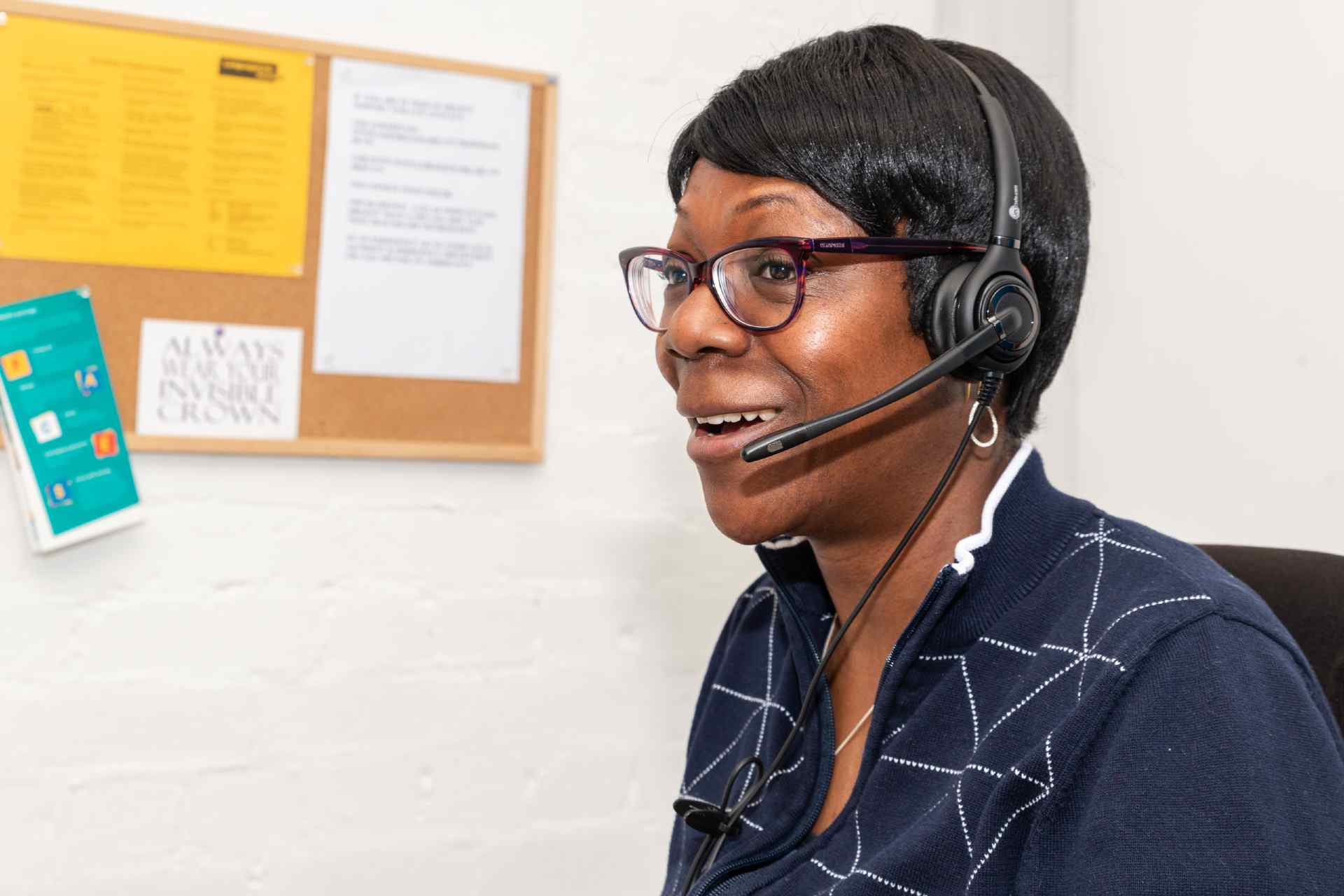I was born with a rare eye condition called congenital fibrotic syndrome, leading to my left eye appearing asymmetrical to the other. Growing up, I didn’t think that I looked different. I was a happy kid surrounded by friends and family.
As I started school, I was constantly stared at, made fun of, and told by my peers that I don’t deserve to have friends and to be treated well because of the way I looked. I still remember heading home every single day feeling so ashamed about my appearance, thinking to myself, “What have I done to deserve a life like this?”
Through all the negativity, my parents were my rock. They would often say that I am “special” and “gifted’ and that one day I am going to realise that and change the perceptions of the world.
As a ten-year-old, I didn’t have any big goals, or good grades. All I ever wanted was to have perfect symmetrical eyes. I tried everything to hide my eye, wearing big dark glasses or using makeup to cover it up. My family and I travelled the world to visit the best eye doctors. But appointment after appointment, I was repeatedly told that my condition is extremely rare and there is currently no cure.
I wanted to look “normal” so badly that I was willing to go to extreme lengths to fit in. After a point, it started to become so exhausting trying to be someone I wasn’t. I knew that I wasn’t being my authentic self, so I decided to focus my energy on my studies. I started to become extremely passionate about starting conversations about mental health to help other people.
After a ton of hard work, I got accepted into my dream university abroad, the University of St Andrews. That’s where I started my own radio show, ‘Unfiltered with Anahita’. I shared my story on the radio and invited other students to join in. Many students reached out after hearing my story, and I had people talk about their journeys struggling with body image, eating disorders, intimate partner violence, and so much more.
The purpose of my show was to create a safe space for students and to be an advocate for mental health. I was able to build a community of people who felt empowered and found strength in their vulnerabilities. I also had the humble privilege to represent my university at the TEDx St Andrews event where I spoke about turning my biggest insecurity into my biggest strength.

Anahita is passionate about starting conversations around mental health.
I still do at times get a few long stares when I’m in public and the occasional: “What happened to you? Why don’t you get your eye fixed?” But it has stopped bothering me. When you have self-belief and accept who you are, whatever people have to say stops bothering you. I realised that not everyone is going to like or understand me and that is okay. If you look at yourself in the mirror and you like the person you see, then that is the only opinion that matters.
I recently found out that surgery is a possibility for me now, but I chose to not go ahead with it. I realised that there wasn’t anything that needed fixing. It’s the beauty standards and people’s mindsets that need to change. I want to be an example for anyone out there who feels like they look different.
Being different is not a bad thing. In fact, in my opinion, being different is beautiful. It’s what makes you stand out and be the change you wish to see in the world.
My advice to anyone with a visible difference struggling with their appearance is to embrace their uniqueness and recognise their inner qualities. True beauty comes from confidence and self-acceptance. You are more than your visible difference and you are the only one that has the power to define your worth.

